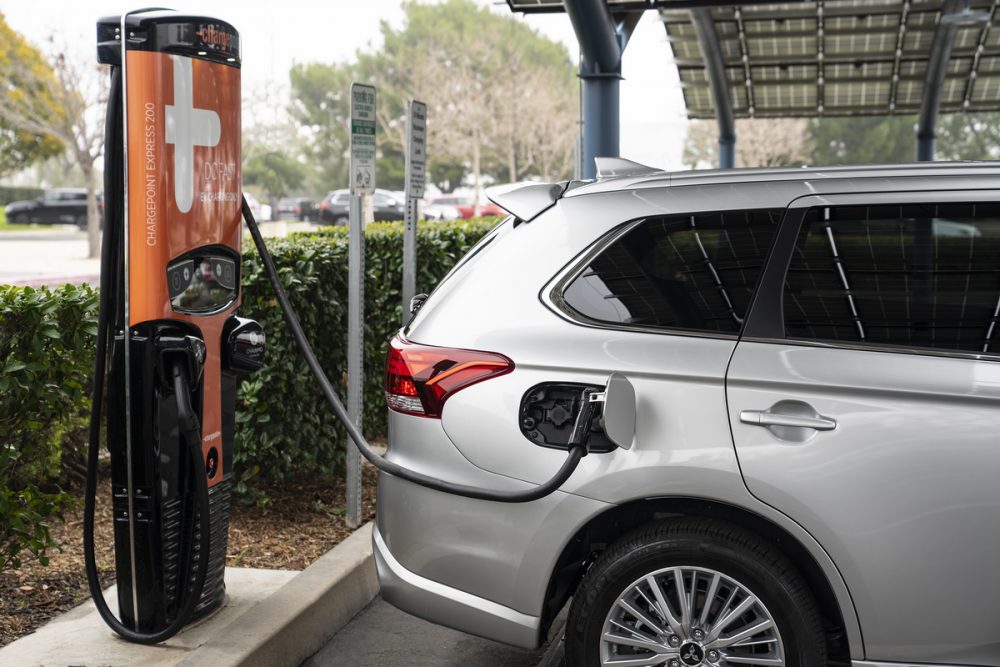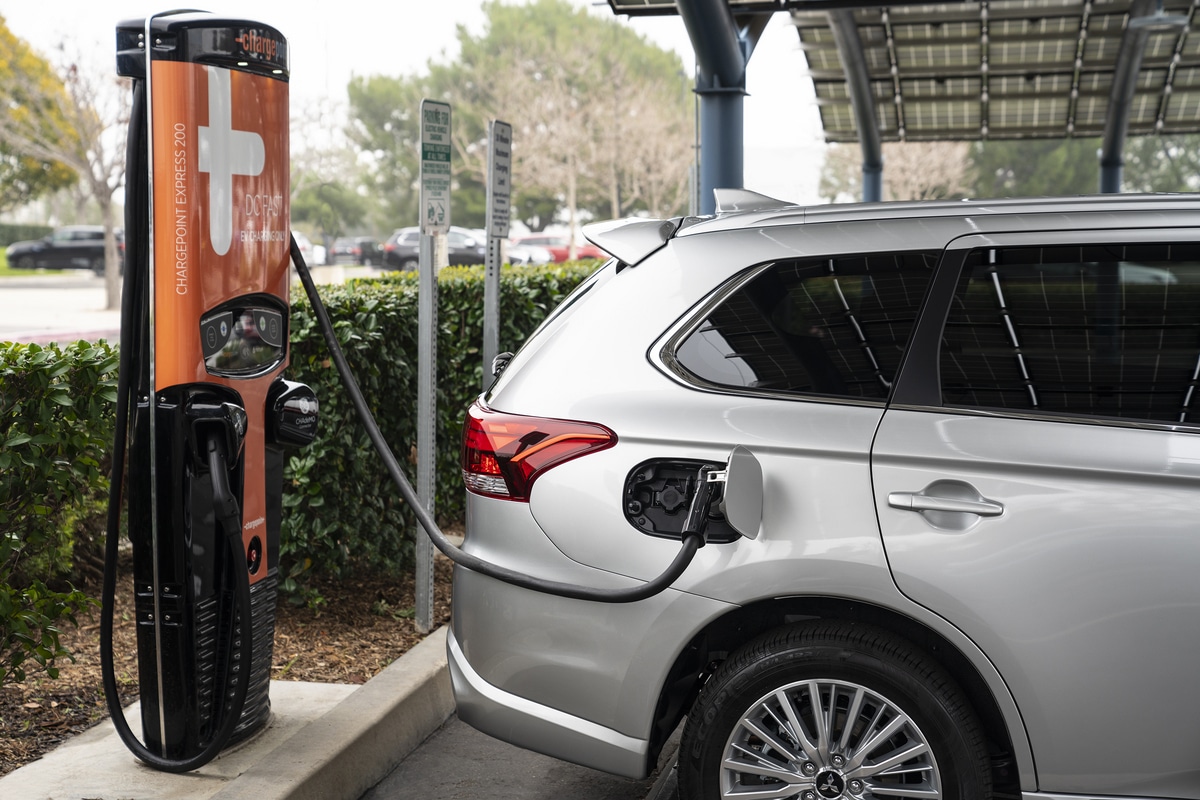 The 2021 Mitsubishi Outlander PHEV charging
The 2021 Mitsubishi Outlander PHEV charging
Photo: Mitsubishi Motors
U.S states have long been relying on gas taxes to help pay for roadwork and other infrastructure projects. However, with the growing popularity of electric vehicles, this may no longer be a feasible way to fund these projects. That’s why Texas state senators are discussing a new bill that would require EV owners to pay an additional fee.
A Fuel-Efficient Option: Take a look at the Mitsubishi Outlander PHEV
What does this bill entail?
The purpose of the Texas Senate Bill 1728 is to compensate for EV owners not paying gas taxes by charging a fee. If passed, the bill would make it so these owners must pay between $190 and $240 each year. Any EV driven over 9,000 miles in one year would have an additional fee of more than $150. Plus, the legislation would require an annual surcharge of $10, which would go toward a charging infrastructure advisory council.
Currently, Texans drive about 300,000 EVs, which means the bill would raise approximately $37.8 million in fiscal year 2022 alone for the State Highway Fund. By fiscal year 2026, the amount raised would increase to a whopping $135,594,000.
Who is for and against the bill?
Several Republicans in the Texas Senate have shown their support for charging EV drivers more. They are by no means the first to consider this solution — 20 states already have put registration fees in place.
Electric-vehicle advocacy group Plug In America stands against these fees. In August 2020, it reported that the 20 states require EV owners to pay anywhere from $50 to $200, even though drivers of light-duty vehicles only pay a national average of $73 in annual gas taxes. PIA believes a better option would be to charge all drivers based solely on their mileage each year.
Your Next Road Trip Destination: The best cities to visit in Texas
If the Texas Senate passes the bill, it will go into effect on Sept. 1, 2021. Let us know in the comments whether or not you think it should be passed.
Amanda Drago lives in West Chester, Ohio with her wonderful family, which includes her adorable dog, Coco. Amanda recently graduated from Miami University with degrees in both marketing and creative writing. However, if she was ever forced to change career paths, she imagines that she would train dogs for movies. In her spare time, she enjoys reading, writing, and watching Netflix. She also has a special place in her heart for theatre and purchases tickets to as many shows as she can. See more articles by Amanda.









